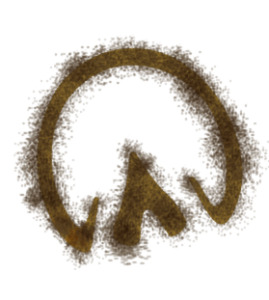Hay everyone!
“April showers bring May flowers” is quite the theme here at Rutgers right now! We’ve been getting lots and lots of rain lately, but I know that means greener pastures are right around the corner. Besides, it gives me time to cozy up and do some more investigating for y’all. Can you guess what we’re talking about this week?
Vaccines! Keeping up with my health is an essential part of my spring schedule. (You’ll get to hear about something else I’ve got planned in my next blog, so stay tuned.) Even though thinking about your yearly vaccinations might not be the most enjoyable activity, keeping up with your horse’s health (and yours too!) is really important. Staying healthy means that we can hang out with our herdmates and our human friends too.
Let’s start simple: “What are vaccines?” You might just see a small tube of liquid that gets injected into your horse, but there’s a lot of cool science that goes into making that. The substance you see contains part of a pathogen (which is something that causes disease, like viruses or bacteria) to help the immune system learn how to fight it. By introducing a sample size of what makes somebody sick, the immune system learns how to recognize the pathogen in the future and create a better defense against it. Think of it like a little warm-up for the body. What’s even cooler is that there’s a lot of different ways we can make a vaccine. In general, vaccines fall into one of three broad categories: live, modified live, or inactivated/killed. These categories describe the form the pathogen is administered in. There are pros and cons to using each type and your veterinarian will be able to answer any specific questions you have.
The most important part is what disease each vaccine is made for. We can separate them into core and risk-based vaccines. Every horse should be given the core vaccines because they help protect against common conditions. For example, eastern and western equine encephalomyelitis (that’s a mouthful!) and West Nile virus are diseases that a horse might be exposed to no matter where they live or what they do. These ones in particular are especially important because the diseases can be deadly. These are part of my annual springtime checkup, but some of my friends that live in a warm and wet climate might get them twice a year. This is because mosquitoes, who love a damp environment, spread this disease. The other core vaccines include protection against rabies and tetanus.
Risk-based vaccines are a lot more variable, and this is something you will definitely chat about with your veterinarian. There’s a lot of different factors to consider when deciding which additional vaccines your horse needs, including age, how often they travel, where they live, and how often they interact with new horses. All these things will help you and your veterinarian decide if your horse is more at risk for contracting a preventable disease. Some examples of these include anthrax, botulism, influenza, Potomac horse fever, and strangles, just to name a few. There’s plenty of others, and there’s a lot of information out there, so be sure to check in with your vet!
A super helpful resource that I found was the website for the American Association of Equine Practitioners (AAEP). Although it has a ton of information, a lot of which is meant for veterinarians, it’s a good place to start if you want to learn more about vaccines for your horse.
Stay healthy!
Your friend,
Lord Nelson

